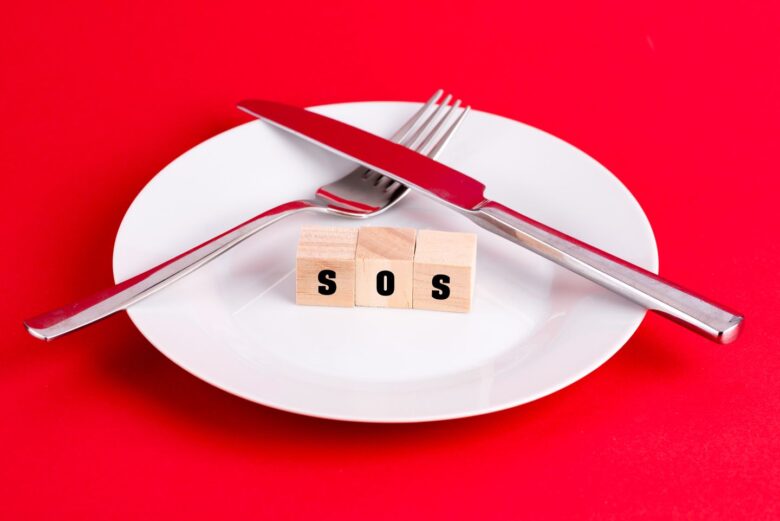Undoubtedly, both Anorexia Nervosa and Bulimia are unhealthy eating disorders with a slight difference. The signs are quite the same as the distorted image of the body. Every patient has a variant food behavior, and it is difficult to find the right disorder between these two.
In both cases, a patient does not want to gain weight, and hence, they follow every possible way to reduce their weight and body shape. But they follow some weird practices that can make them ill. You may not realize that you are suffering from these disorders. But you need help to handle your food behavior and healthily reduce weight.
Visit oliverpyattcenters.com to know if your partner is suffering from Anorexia Nervosa and how you can deal with it. You must know how to handle this issue and get help from a doctor. In the following write-up, we will discuss some differences between Bulimia and Anorexia Nervosa.
What is the Slight Difference Between These Two Disorders?

Source: timesnownews.com
In Anorexia Nervosa, patience minimizes the intake of food for losing weight. They feel conscious about their appearance, and they stop eating food to get in the desired shape. On the other hand, Bulimia is a condition when a patient eats excessive food in a short time and uses different methods like laxatives, vomiting, etc., to avoid weight gain.
In both ways, the body can become malnutrition and a patient can become severely sick. According to ANAD, there are over 30 million Americans who are suffering from these disorders.
Symptoms
The symptoms are variant in both cases. Such as:
Anorexia Nervosa

Source: thestar.com
Anyone suffering from Anorexia Nervosa can also suffer from depression, mental trauma, anxiety, etc. You can observe extreme weight loss in a short time. You can check various signs of this disorder like:
- Constipation
- Yellow and dry skin
- Insomnia
- Irregular heartbeat
- Fatigue
- Hair thinning
- Dizziness
- Weakness
- Dehydration
- Weight loss
- Problems in mensuration
- Bluish tinge in fingers
- No cold tolerance
- Downy hair on the face, arms, and entire body
- Anxiety
- Poor body image
- Depression
- Social isolation
- Mood swings or irritation
- Skipping meals
- Intense workout
- Hiding body with loose clothes
- Taking low-calorie food
- Avoiding public food places
- Lying about food habits
- Talking negatively about the body
Bulimia

Source: psycom.net
People suffering from Bulimia eat a lot of food at once, and after some time, they regret gaining too much weight. They disturb their digestive cycle by unhealthy food habits.
They also show some signs of preventing excessive weight gain. But before discussing its symptoms, you must know that two types of Bulimia are there. The patient’s purging attempts make them quite different from each other. The two types are:
- Purging: The patient can vomit after eating a lot of food. They can misuse enemas, diuretics, and laxatives. The fear of weight gain makes them do vomiting and take out all the consumed food. But in this way, they are not only taking out food but also losing other essential nutrients.
- Non-purging: The people of this category are involved in extreme exercising to prevent weight gain. Again, they eat a lot of food and start exercising to lose extra calories.
Generally, people suffering from Bulimia also have symptoms of anxiety because of their excessive eating habits. Let us know some of the signs of Bulimia to detect the disorder in people living with us.
- Bloodshot eyes with visible vessels in eyes
- Swell lymph nodes
- Fluctuation in weight weekly from 5 to 20 pounds
- Chapped lips
- Dehydration
- Scars and sores on knuckles by inducing vomiting
- Sensitivity in gums, enamel, or an entire mouth
- Uncomfortable eating point
- Consciousness about gaining weight
- Refuse to eat socially
- Visiting bathroom quickly after the meal
- Avoid calories
- Too much exercising
- Poor body image
- Depression
- Stay away from public gatherings
- Anxiety
- Mood swings or irritation
How Do These Disorders Cause?

Source: brocku.ca
There is no way to find out how these disorders cause in people. There can be many factors affecting individuals and develop such problems in them. According to the combination of factors like biological, environmental, as well as psychological can affect any person. Let us know various included factors:
- Genetics: If any of your family members suffering from this disorder, then there are chances that you can also suffer from the same issue. But it is not yet confirmed whether there is any genetic link or not. Researchers are working on it and knowing the details of the assumed theory.
- Emotional Well-being: If you have any problem like anxiety, depression, you can have any of the eating disorders. It is found that people in depression either start eating more or stop eating anything. The change in their behavior can depend on self-esteem and stress.
- Pressure Undergoing in the Society: Nowadays, every person wants to look good in society. It includes a perfect body shape and weight. Everyone loves appreciation from other people. Sometimes, it is hard to achieve those goals by exercise and diet. Therefore, many people go beyond and change their eating habits. They want immediate results by avoiding food or extra calories. The wish to get the perfect body shape and weight leads to these disorders.
Way of Diagnosing the Problem

Source: bostonglobe.com
Your physician will ask for various tests to confirm whether you have any disorder or not. There will be a physical exam where he monitors your BMI and fluctuations in weight and body shape. He may ask for the eating habits and ensures your mental health.
Within some time, it will be easy for a doctor to know about your health status. After diagnosing and confirming your health issues, he will proceed further towards effective treatments.
The Bottom Line
It is crucial to understand the difference between Anorexia Nervosa and Bulimia unhealthy eating disorders. Anyone can have these problems, and you can hardly detect them.
It is vital to check the signs and know whether anyone is suffering from these issues or not. In case of doubt regarding your problem, you must visit a doctor for confirmation and get treatment before it gets too late.
